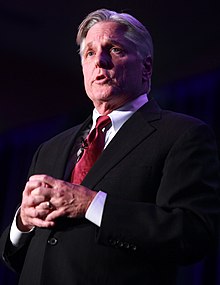August 29, 2014
Dear Fred Duval,
Presently
the Arizona Department of Corrections has a fractured structure for all matters
that falls under the umbrella of intelligence and or common sense. There
is NOT a funnel that captures all the data and formulates probability
assessments of future issues on a macro or micro scale. The objective is
to find out as much as one can after an event to place it into context.
Actionable
intelligence scenarios are nearly nonexistent beyond the unit level. The same
can be said about the absence of common sense and practical situational
awareness assessments. Rarely is the information shared with shift personnel
doing the day to day business. The art of acquiring human assets has diminished
and is sorely lacking. What mostly exists are lists of known high profile
inmates who will go through a process after an issue and pull influential
inmates out to play "catch up“ and discern the cause of whatever effect.
The current
system would focus on the dope users and be satisfied capturing dirty inmates
during a UA as opposed to shutting down the venue by which narcotics are
introduced. An active method of drug interdiction is non-existent at all prison
complexes. The way this has been conducted seems backwards; Intel should
indicate the smuggler not the user is the focus of the intelligence effort.
To be most
effective an intelligence chief using counter insurgency techniques akin to the
military effort and this chief would need hard soft and electronic assets for
the chief. This priority is severely lacking. The process would subsume
all Intel efforts from STG, CIU, and all efforts they control; tracking the hot
spots at units trending where they will pop up, assess instigator and
provide written report to DD for actions.
Lessons
unlearned.......shifting direction in ADC
There are 3
primary areas of generational concepts that have been underutilized and have
contributed to unsafe working conditions within the ADC. Sadly during
unprecedented time when intakes have dropped and the department was able to
close prisons due to a lack of need. However the managing concepts have
stayed in a generational mode when similarities to current conditions existed.
The model of ADC is a retreading of the 1990s concepts without the same
conditions existing.
During that
time frame we had severe overcrowding which required expansion of the physical
locations and a new complex being added. Additionally the concepts of
classification were taking root along with the erosion of the standalone
complex.
These
conditions plus a drastic change in the workforce created a division between
Central Office, the individual complexes and their leadership and largely lost
the support of the rank and file. To say the system is fractured is a gross
understatement.
Presently
there is a push at this writing to give a veneer of professionalization of the
workforce through nearly mandated education enhancements for promotions without
any focus on the issues facing the largest government body in AZ. It is a
gross fabrication ignoring the temperance experience gives the profession.
The greatest
issues that reoccur for the rank & file are safety and a sense of worth.
It is a given that prisons by virtue of their clientele (which will never
change) are expected to be challenging but not unsafe. The present
culture expects hazardous conditions to be a part of the job risks and
therefore left at a very low attentive level for corrective actions and
precautionary tactics.
To address
these core issues and grievances 3 critical areas that need to be considered
are a complete retooling of the department intelligence community (with an
emphasis on future casting and being proactive as opposed to reactive) ,
a new standard in human resources with the emphasis on employees first with
personnel reform at the forefront having all disciplinary matters coordinated
in this body, lastly a civilian review committee connecting the Governor with
the Department via a secondary prism taking autonomy away from a single individual
and allowing true transparency along with varying view points for the Governor
to consider.
These three
areas will begin the process of professionalization of the department and
rebuild the disconnect between the officers and management and unlearn lessons
better identified for a generational workforce which does not reflect the
current workforce.
The
workforce presently requires a para-professional concept with elements of
para-military but only in the linear delineation of rank for structure and
emergency situations requiring the straight forward design.
But beyond
that the para-military comparison needs to end. A more collegiate and
technology based environment needs be established to best develop this work
force. The department is unique it works for the executive branch
curtailing rights of citizens who violate laws as established by legislature
imposed by the judicial with the; with a higher requirement to the mandates of
the U.S. constitution.
In a sense
beholding to all simultaneously. But while there's a military appearance
and a law enforcement perception the profession is drastically different but
has taken on the aspect of these institutions.
This
perception needs to be laid rest and the department needs internal
professionalization to be accepted by itself and other agencies as a
respectable organization. This has not been attempted in AZ and very few
models available but with the largest workforce and commensurate budget it
should be a mandate and standard befitting the responsibility. To do so
it needs to unlearn lessons and leap into the forefront of its profession and
its place in AZ.
Respectfully,
Carl R.
ToersBijns – retired deputy warden

No comments:
Post a Comment